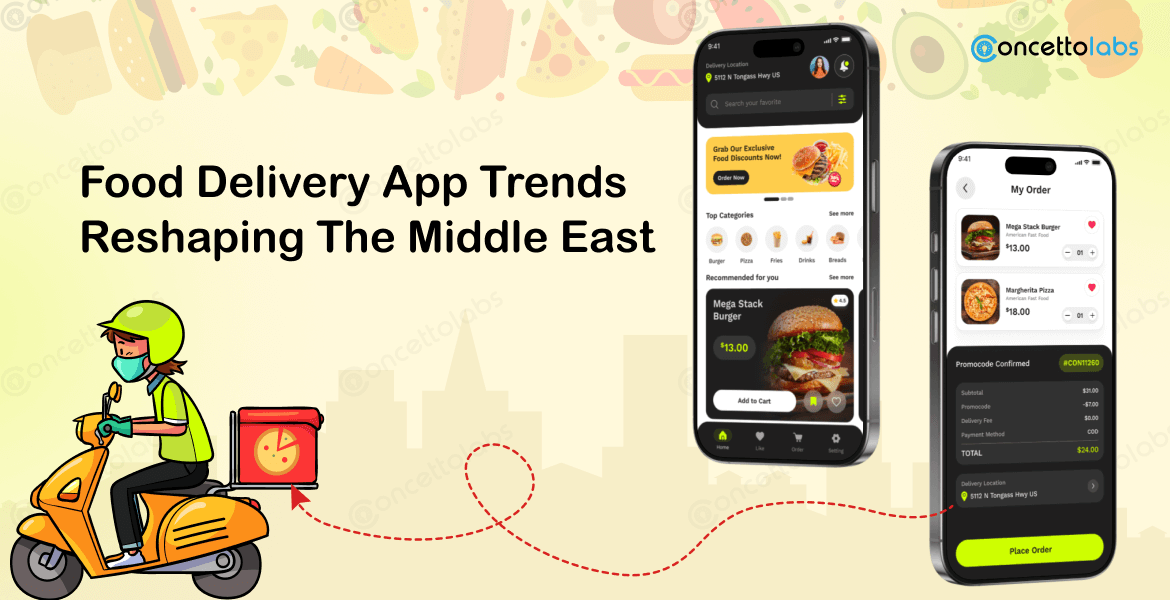
We are heading toward the digital era as gone are the days when health checkup was a complex task and have to wait a couple of days for reports. In this digital technology revolution, many healthcare software development company have been developing for medical professionals and many healthcare-based businesses.
According to a study by Forbes, the digital healthcare market is expected to reach $206 billion by 2020 and several leading companies are a refining approaches to transforming digitally. For any business it a pivotal to keep an eye on healthcare-related applications that can be a game-changer for the healthcare industry.
It is projected by Deloitte that Innovation will be seen in the Healthcare sector $10.059 trillion by 2022. This digitally revolutionized healthcare industry will transform the world towards gaining easy solutions for any disease. Want to learn more about trending healthcare mobile apps for patients that will provide integration into the process and will be marked under digital revolutions, Dive in here to
know more:
List of 7 digital health technologies

Artificial Intelligence to create Future
The role of Artificial Intelligence is growing in healthcare which can replicate humans in processing information and decision-making. With AI, the body can scan the spot of chronic diseases such as cancer at a very stage and save lives by bringing down the mortality rate. Moreover, several pharmaceutical companies deploy machine learning algorithms for exploring chemical and biological interactions for developing new drugs and replacing the earlier process of performing clinical trials. The year 2020 has explored the chance of reformulating an effective cure next to a deadly virus.
IoMT( Internet of Medical Things)
Today the digital healthcare market has given a whole new approach with the arrival of the Internet of Medical Things(IoMT). This technology plays a vital role in preventing chronic diseases by tracking vital medical stats through various devices and using the healthcare app. The IoT can enable wearable devices that help to examine common measurements such as heart rates, blood pressure, calorie, and more. With the help of this, few healthcare-related applications users can now enhance customer experience and profitability. So far there are 30 billion users have deployed IoMT devices and is expected to increase the market by $136 billion by 2021.
Chatbots serve as Digital Assistants
In this digital era, chatbot technology work as a human and helps punter to deal with routine medical task. It uses AI-backed messaging and voice systems affordably. Chatbots are smart bots that can serve as digital assistants to Physicians in maintaining the records of contacts and in managing appointments. The research says that the chatbot market will touch $1.23 billion by 2025 with an annual growth rate of 24%. Moreover, chatbots can provide endless services to the healthcare industry when it comes to customer services, potential diagnosis, or inventory management.
Telemedicine is becoming a Necessity for a large population
It’s a kind of remote diagnosis that can transform the future healthcare industry. Using this technology, Doctors can telecommunicate technology to evaluate, diagnose, and treat patients remotely. This technology is very useful for those areas where access to healthcare is limited. Statista has shown that telemedicine healthcare mobile applications has increased by 7 million by 2019 and are growing rapidly. This increase is due to the growth seen in smartphone revolutions, video chats, etc. Hospitals are also benefitted as they can now get real-time monitoring of their patients outside the location.
Cloud Computing in Healthcare
In this digital era, chatbot technology work as a human and helps punter to deal with routine medical task. It uses AI-backed messaging and voice systems affordably. Chatbots are smart bots that can serve as digital assistants to Physicians in maintaining the records of contacts and in managing appointments. The research says that the chatbot market will touch $1.23 billion by 2025 with an annual growth rate of 24%. Moreover, chatbots can provide endless services to the healthcare industry when it comes to customer services, potential diagnosis, or inventory management.
Big Data Analysis is redefining the dynamics of the Digital Healthcare Industry
We can be thankful for the digital innovation that has led to more healthcare organizations and has provided tools for delivering seamless healthcare apps. When Big Data is applied to healthcare then you can use health data to help peers to prevent epidemics, reduce costs, and cure diseases. Big Data works as innovative digital healthcare technology and uses big data analytics for detecting thefts and medical frauds. With expanding the growing population, there is an increase seen in the healthcare system. The role of Big Data is to improve the significance of patients by streamlining the workflow.
Blockchain in Health care
Some people will think that BlockChain technology for cryptocurrencies such as Bitcoin comes with security used in several ways. In short, we can say that it’s data that cannot be edited or taken away. It’s a chain of data that is very secure to use. You don’t need a third party to make a transaction but gives a great way to improve integrity via peer to peer system with the shared digital ledger. It is expected that BlockChain is going to make a drastic change in the healthcare Industries.
So what’s Next?
The healthcare industry is unturned by various emerging technologies and is working on the desired set of the targeted audience. The above list will give you promising career potential and a foreseeable future based on healthcare. It is expected that these technologies are going to rule in 2020 and knowing these trends happening around the healthcare industry is very important. Innovation will remain the basis for the digital transformation of business in this healthcare sector so we can keep an eye on it. Feel free to contact us for any queries.







 Indonesia
Indonesia
 Botswana
Botswana
 USA
USA
 Italy
Italy
 Panama
Panama




 USA
USA UK
UK Saudi Arabia
Saudi Arabia Norway
Norway India
India Australia
Australia